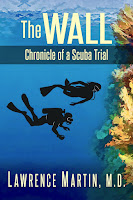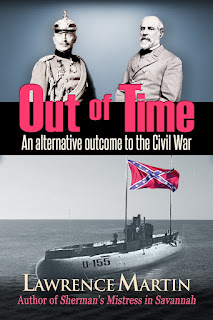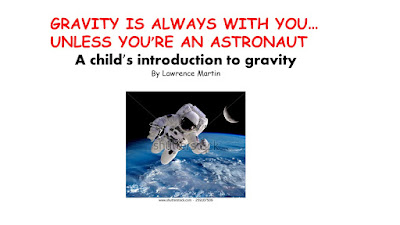I just read a review of the new movie
The Martian, in the WSJ.
http://www.wsj.com/articles/matt-damon-tinkers-to-survive-on-mars-in-new-movie-1443025432

As a writer, what most impressed me was the story about the underlying book, by Andy Weir. He wrote it on-line, in serial fashion, and it created a large fan base. One thing led to another (movie contract, etc.). His day job was computer programming. To quote the WSJ article:
* * *
Six years ago, Mr. Weir was a programmer working on mobile apps who had gained a modest following for the comics and sci-fi stories he published as a hobby on his website. A space nerd, he plotted missions in his head and wrote software to calculate orbital trajectories. He figured a Mars mission gone awry would make a thrilling tale, which he started posting online in 2009. The science, he says, became the drama.
“I’d do a chapter maybe once every two months,” he says. “I knew more about space than a layman because it’s my hobby. I’ve watched many documentaries about it. But I didn’t know anyone in aerospace, so I was on my own. I googled a lot.”
Fans encouraged him to compile the tale into a downloadable e-book, then a 99-cent Kindle book in 2012. Soon it was selling tens of thousands of copies and appearing in Amazon’s “you might also like” recommendations. A literary agent called about publishing it in hardcover, and Hollywood producers and studios circled.
* * *
This is every self-published author's dream, to write something that goes "viral" and end up a best seller or movie script. The chances are extremely remote, given the 1 million+ self-published books out there. He was smart to post it on the internet, rather than trying for regular publication. Most likely, if the unknown Weir had first submitted his book to publishers it would have been turned down flat. "A guy is stranded on Mars? That's it? No thank you. Not for us."
Anyway, on the oft chance that this could happen to anyone writing fiction, I have decided to serialize a short story/novella I am writing. Here is Chapter 1. I will post chapters at no specific intervals, but likely more often than every two months.
- - - - -
The Visit
by Lawrence Martin
Chapter 1
The whole house shook.
“Did you feel that?” George asked his wife
Martha.
“Do they have earthquakes in The
Villages?” she asked.
“Not that I’ve heard of. This is Central Florida.”
George turned on the light and they got
out of bed.
“What time is it?” she asked.
“Three-thirty.”
“I thought I heard some dishes rattle,”
said Martha. She went into the kitchen,
turned on the light. Two glasses left on
the counter now laid on the floor, broken.
“Could have been an explosion of some
sort,” said George. “I’ll turn on the
lanai lights.”
With
lights on he saw nothing. The night was particularly dark, no moon. Their ranch home bordered the fifteenth
fairway of the Muirfield Country Club in Aberdeen, one of the many villages
making up “The Villages.”
Fairway houses sell at a premium in The
Villages, since they offer nice vistas from the lanai. Sometimes golf balls would land in George and
Martha’s small backyard, which is out of bounds, separated from the fairway
rough by white stakes. An occasional
golfer would walk on the lawn to retrieve his errant shot, but the rules of
golf forbade him to hit it. George knew
these rules since he played regularly.
“Not well,” as he was wont to say about his playing.
Martha came out to the Lanai. “Turn off the lights. They make it more difficult to see the
fairway.”
“Can’t see anything. No moon tonight.”
“Then turn on the TV.” George did as told.
“Nothing but old movies and infomercials
in the middle of the night.”
“CNN?”
“Nothing.
Same news as yesterday.”
“Let’s go back to sleep, George. If it’s anything, we’ll read about it in The Village Sun.”
They went back to bed and the phone
rang. Half asleep, George picked
up.
“George, this is Gladys.”
“Who?”
“Gladys, your neighbor. I saw your lights go on, so knew you were
up. Did you feel that shock?”
“Oh, yes, Gladys. Sorry, just waking up. Yes, we felt it. What was it?”
“I don’t know, Harry went out to
investigate.”
“He’s walking out to the fairway?”
“Yeah, he took a flashlight. You want to join him?”
“No, we’ll stay here. Call us if he finds anything.”
For the next five minutes George and
Martha rested in bed, trying to find sleep.
“Hear that?” said Martha.
“It’s a police siren. Or maybe EMS.”
“See.
Must have been an explosion.
Somebody’s gas exploded.”
“There is no gas in this part of The
Villages. All electric.”
“Well, something else.”
They got up and went out to the
lanai. “Look,” said Martha. “There’s two police cars in the fairway. Their roof lights are flashing. What are they looking for?”
“I don’t know, but I’m going out
there. I’ll find Harry. You wait here.”
“George, I just realized what it is.”
“Oh, what?”
“A giant sink hole. Must have just dropped
down, causing the boom.”
“Do sink holes cause booms?”
“Not sure. Why don’t you go see, but be
careful.”
George dressed and found a heavy duty
flashlight. He unlocked the lanai door,
walked past the golf cart part toward the flashing lights. In addition to the two police cars and
several Sumter County police, there were nine or ten Villagers milling
around. He found Harry.
“Hi, Harry. What the hell’s going on? Was there an explosion?”
“Apparently not.”
“What then?”
“Look. They won’t let us get closer. Those flashing lights show something’s
there.”
“It’s a blur,” said George. “What are they seeing?”
“Here, let me shine my flashlight.” Harry aimed his flashlight at an object about
thirty yards distant.
“I don’t see anything. What are you shining your light at?”
“It’s over there. I’ll wave the flashlight back and forth.
See?”
“What?
A rock? What is it?”
“Exactly.
A rock or object of some kind.
But it’s tall, goes way up. I
heard one officer say it could be meteor.”
“A meteor?
On Muirfield golf course? Just my
luck. Are others coming this way? I don’t have meteor insurance.”
More people came out of their homes,
walking from backyards to the fairway.
Two more police cars arrived.
George wasn’t sure how the police reached the fairway from the street,
but assumed they just crossed the curb, the cart path and anything else in
their way. A police captain exited one
car and began giving orders. “You people
will have to return to your homes. We need
to secure a perimeter. The golf course is
now off limits pending further investigation. Then he spoke into his cell
phone.
“Yes sir, it’s being secured. Five minutes?
OK, will do.”
Turning to the villagers, the Captain
spoke. “I’m sorry, folks, but I’ve got
to ask you to leave now. Anyone still on
the fairway will be detained. Do I make
myself clear?”
The curious villagers were all law-abiding
retirees, none interested in seeing the inside of a police car. Harry and George walked back to their homes,
each situated just across the cart path, only about 150 yards from all the
activity.
“Well,” said George, “they can’t arrest us
for sitting on our own property. I’m
going to bring out a lawn chair, sit right in front of my lanai.”
“Mind if I join you?” Harry asked.
“Not at all. We’ll have a party. Ask Gladys to come, too. Good thing it’s warm tonight.”
George grabbed four chairs from the lanai
and positioned them close together on the lawn.
Gladys came out. The four friends
sat and waited.
“I bet on a sinkhole,” said Martha.
“The police think it may be a meteor,”
said Harry.
“I bet it’s an explosion, set off by some
kids on the golf course,” said Gladys.
“There are no kids in The Villages,” said
George. “Unless they’re visiting.”
“It could be a terrorist attack, though,”
offered Harry.
“Why would terrorists attack the fifteenth
fairway?” asked George.
“Every play this hole?” asked Harry.
“Several times.”
“What was your score?”
“Funny.
Someone’s going to blow up the fairway because of a high golf score?”
“Golfers are nuts. What can I say?”
They didn’t have to wait long. The sound of a helicopter came closer and
closer, its powerful searchlight scanning the ground.
“There it is, over by the club house,
coming this way.”
“Well, that will shine some light on this
thing, said Harry.”
“Yeah, literally,” said George. “It’s not landing. Wonder why.”
“It’s circling the police cars,” said
Harry. “I guess they need it just to see
what caused the boom.”
The search beam traced the ground back and
forth while the helicopter remained stationary at altitude, a thousand feet up. The beam’s arc gradually diminished, finally
settling on the object that had been only dimly visible from the ground when
Harry and George inspected it.
“What the hell?” said George, as he rose
from his chair.
“I’ll be goddamn,” said Harry.
Martha moved over to George and grabbed
his hand. “What is that?” she asked.
“It’s the end of the world,” said Gladys.
END of CHAPER 1












